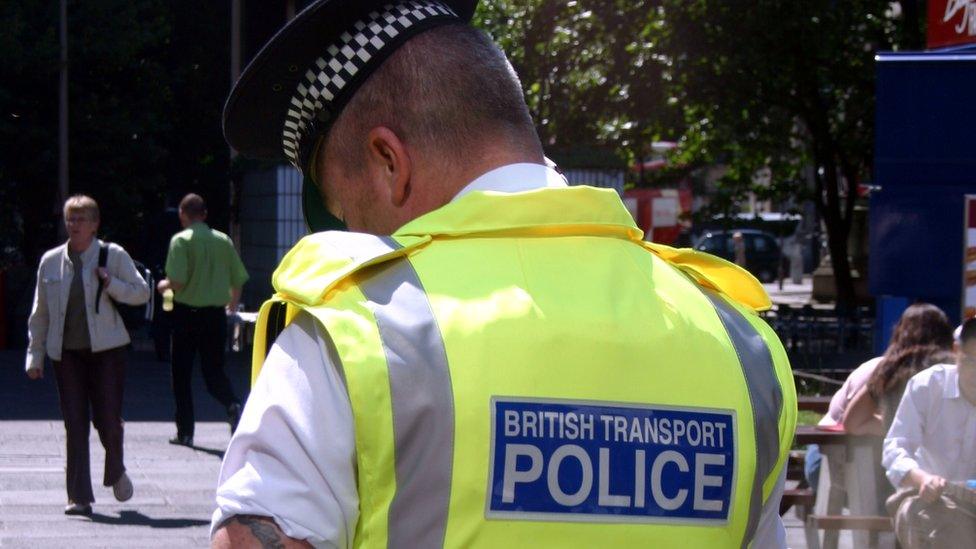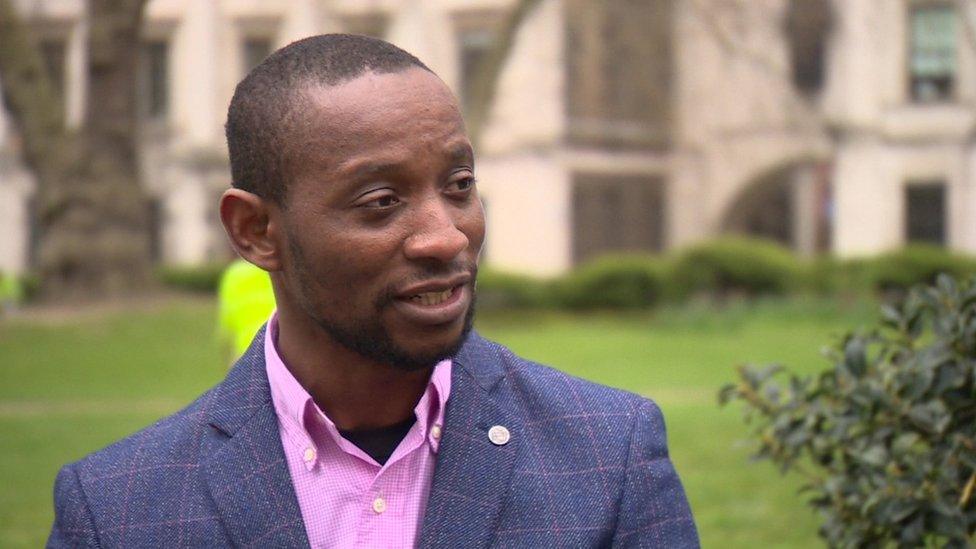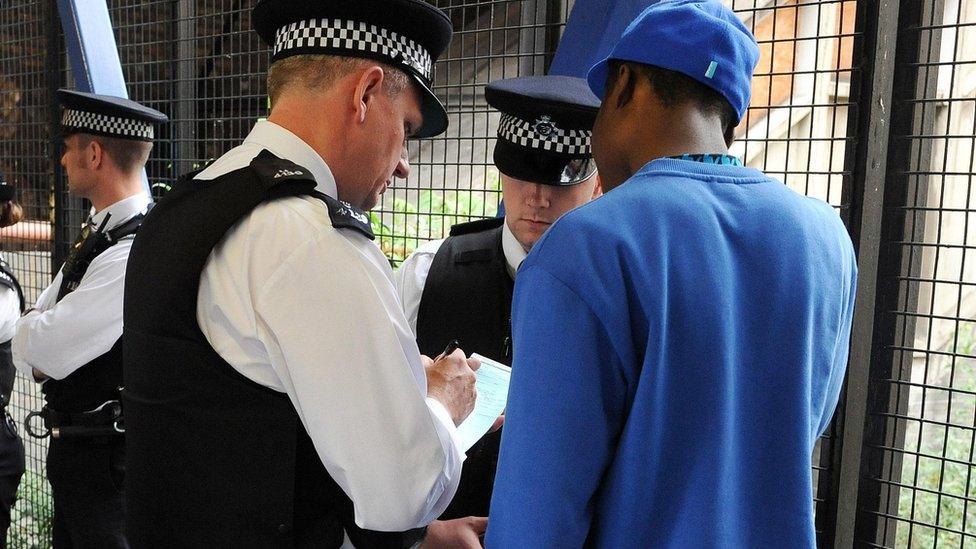BTP six times more likely to use force on black people
- Published

British Transport Police officers used force 6,325 times in 2019-20
Officers with the British Transport Police (BTP) are six times more likely to use force against black people than white people, new figures suggest.
Official records obtained through a FoI request, show BTP officers used force 6,325 times in 2019-20, with one in five cases involving black people.
The BTP polices England, Wales and Scotland's rail networks.
A spokeswoman said the BTP "will always place diverse communities at the forefront of our policing approach".
She said: "We are acutely aware of our responsibility to demonstrate fair and effective policing and to consistently analyse and challenge the way we work.
"Our approach will put the community at the heart of this process, and not only welcome but invite their scrutiny."
BBC analysis using figures from the National Travel Survey and Department for Transport (DfT), shows black people are roughly six times more likely to experience force at the hands of police.
BTP figures show 17.5% of all use-of-force incidents were against a black person.
It said the travel survey was "one of a number of different data sets we consider when delivering operational activity".
A spokeswoman for the BTP said: "It is important to contextualise that BTP is unique in policing a national and transient population, which covers many very varied local demographics across three countries.
"It also means there are geographical influences on our operational activity which may not be reflected accurately in figures on a national level."

I screamed: 'I'm dying'
Ben Omohuma said he lost consciousness when eight BTP officers pinned him to the ground
Ben Omohuma said he no longer feels safe when he sees a police officer.
In August 2019, he voluntarily attended the BTP police station in Islington, north London, to answer questions about an allegation of domestic abuse said to have taken place at a railway station. The accusation was later dismissed.
Following questioning, Mr Omohuma was arrested pending an investigation and released. But he refused to leave the station until he had had his mobile phone returned.
CCTV shows officers slowly moving towards the van entrance to the police station.
When he still refuses to leave, eight police officers pin him to the ground, handcuff him and carry him to an on-site cell.

Ben Omohuma said police do not appreciate black men "asking them questions"
"I was thinking, 'This is the end of my life'," Mr Omohuma said.
"I was saying, 'I'm dying, I'm dying, I'm dying' but they said, 'You're not dying, you're still talking."
Mr Omohuma alleges the police continued to pin him in his cell until he lost consciousness and that he woke up with blood on his clothing and was unable to move his arms for several minutes.
A medical note provided by the police stated he did not have any injuries.
Officers charged Mr Omohuma with violence in a police station but he was cleared of all charges by magistrates once CCTV of the incident was released.
CCTV of the cell room, where Mr Omohuma claims he lost consciousness, was not provided. The BTP claim the footage was overwritten due to a miscommunication between the investigating officers and the team in charge of the CCTV.
"As a black man, they don't appreciate you asking them questions. As a black man, you're just supposed to agree to whatever they say and say: 'Yes sir!'
"But if you ask them questions they become defensive and aggressive."
"I can't think of anything that would make them use excessive force on me.
"I didn't have a weapon, I wasn't showing any signs of violence towards the police. I just couldn't imagine why I have to have eight police officers on just one man."
Following the incident Mr Omohuma made a formal complaint to the BTP's Professional Standards Department.
The BTP said Mr Omohuma's complaint "did not make any reference to him falling unconscious and we have no evidence that this was the case".
Following an investigation the complaint regarding excessive force "was not upheld".

The charity Inquest said: "Despite recent public concern around dangerous and disproportionate use of force, particularly against black people, this data shows not enough is being done by British Transport police to prevent it.
"Inquest has documented a long history of black people disproportionately dying following use of force and neglect by police.
"Inquests frequently uncover discriminatory treatment which is rooted in racial stereotypes, rather than the relevant training or procedures.
"There is an urgent need for structural and cultural change in policing."
Related topics
- Published30 July 2020
